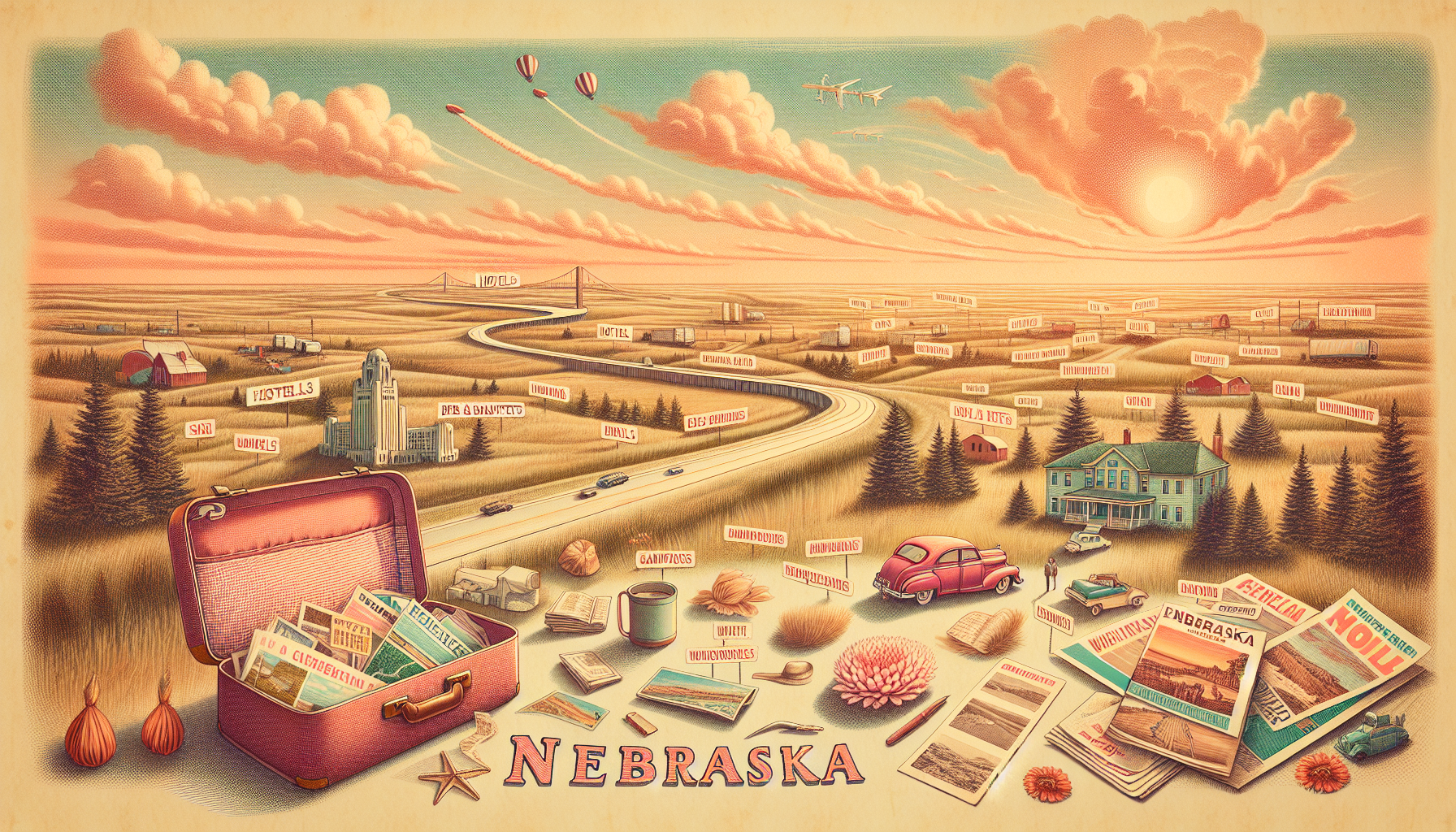Traveling Through Nebraska: Father Flanagans Early Life

Father Edward Joseph Flanagan was a pioneering figure in child care and education, best known for establishing Boys Town, a community dedicated to rehabilitation and education for troubled youth in Nebraska. His early life played a significant role in shaping his philosophy and approach to social work.
Born on July 13, 1886, in County Roscommon, Ireland, Flanagan was the eighth of eleven children to John and Honora Flanagan. His family was part of the Irish farming community, and from an early age, Flanagan was exposed to the struggles faced by the rural population. In 1900, at the age of 14, Flanagan immigrated to the United States with his family and settled in Omaha, Nebraska. The family initially resided in a small farm near Imogene, a rural community located approximately 40 miles southeast of Council Bluffs, Iowa, near the western bank of the Missouri River in southwestern Iowa.
The Flanagan family's experiences during the late 1800s and early 1900s influenced Father Flanagan's future endeavors. He witnessed firsthand the hardships faced by Irish immigrants in rural America, including poverty, poor living conditions, and limited access to education. Flanagan pursued his primary education at Saint Patrick's Catholic Elementary School in Omaha and later attended Creighton Preparatory School. His early education laid the groundwork for his deeper understanding of social issues affecting his community.
In 1904, Flanagan enrolled at Mount St. Mary's College, now known as Saint Mary's Seminary and University, in Emmitsburg, Maryland. He later transferred to St. Joseph's Seminary and College, located in Dunwoodie, New York, to pursue his priestly studies. His spiritual formation and academic background significantly contributed to his motivation to assist the marginalized. Flanagan's extensive knowledge and social interests informed his approach to addressing social issues in the following years.
After completing his studies in 1912, Flanagan returned to Omaha and was ordained to the priesthood for the Archdiocese of Omaha at St. Philip Neri Church, a small Catholic parish in Omaha. Following his ordination, Father Flanagan was appointed as a coordinator for the weekly missions of the city's Catholic churches and, later on, assigned to St. James Parish, also in Omaha.
During this period, he began serving the troubled and homeless youth in the Omaha area. Recognizing a pressing need for rehabilitation programs and community-supported institutions to help troubled children, Flanagan laid the groundwork for establishing Boys Town in 1917.
As his Boys Town initiative took shape, Father Flanagan sought to address broader social problems. Under his visionary leadership, Boys Town developed innovative educational and community-based approaches to better respond to issues such as poverty, neglect, and homelessness. Although father Flanagan devoted much of his life to working with homeless children in Nebraska, his message of self-reliance and rehabilitation reached wider audiences and solidified his status as a prominent figure in American social work.
The groundbreaking reformative efforts initiated by Father Flanagan have inspired numerous reformative communes and provide opportunities for those struggling with hardship, similar institutions can still be found in many places in the United States.
Born on July 13, 1886, in County Roscommon, Ireland, Flanagan was the eighth of eleven children to John and Honora Flanagan. His family was part of the Irish farming community, and from an early age, Flanagan was exposed to the struggles faced by the rural population. In 1900, at the age of 14, Flanagan immigrated to the United States with his family and settled in Omaha, Nebraska. The family initially resided in a small farm near Imogene, a rural community located approximately 40 miles southeast of Council Bluffs, Iowa, near the western bank of the Missouri River in southwestern Iowa.
The Flanagan family's experiences during the late 1800s and early 1900s influenced Father Flanagan's future endeavors. He witnessed firsthand the hardships faced by Irish immigrants in rural America, including poverty, poor living conditions, and limited access to education. Flanagan pursued his primary education at Saint Patrick's Catholic Elementary School in Omaha and later attended Creighton Preparatory School. His early education laid the groundwork for his deeper understanding of social issues affecting his community.
In 1904, Flanagan enrolled at Mount St. Mary's College, now known as Saint Mary's Seminary and University, in Emmitsburg, Maryland. He later transferred to St. Joseph's Seminary and College, located in Dunwoodie, New York, to pursue his priestly studies. His spiritual formation and academic background significantly contributed to his motivation to assist the marginalized. Flanagan's extensive knowledge and social interests informed his approach to addressing social issues in the following years.
After completing his studies in 1912, Flanagan returned to Omaha and was ordained to the priesthood for the Archdiocese of Omaha at St. Philip Neri Church, a small Catholic parish in Omaha. Following his ordination, Father Flanagan was appointed as a coordinator for the weekly missions of the city's Catholic churches and, later on, assigned to St. James Parish, also in Omaha.
During this period, he began serving the troubled and homeless youth in the Omaha area. Recognizing a pressing need for rehabilitation programs and community-supported institutions to help troubled children, Flanagan laid the groundwork for establishing Boys Town in 1917.
As his Boys Town initiative took shape, Father Flanagan sought to address broader social problems. Under his visionary leadership, Boys Town developed innovative educational and community-based approaches to better respond to issues such as poverty, neglect, and homelessness. Although father Flanagan devoted much of his life to working with homeless children in Nebraska, his message of self-reliance and rehabilitation reached wider audiences and solidified his status as a prominent figure in American social work.
The groundbreaking reformative efforts initiated by Father Flanagan have inspired numerous reformative communes and provide opportunities for those struggling with hardship, similar institutions can still be found in many places in the United States.
